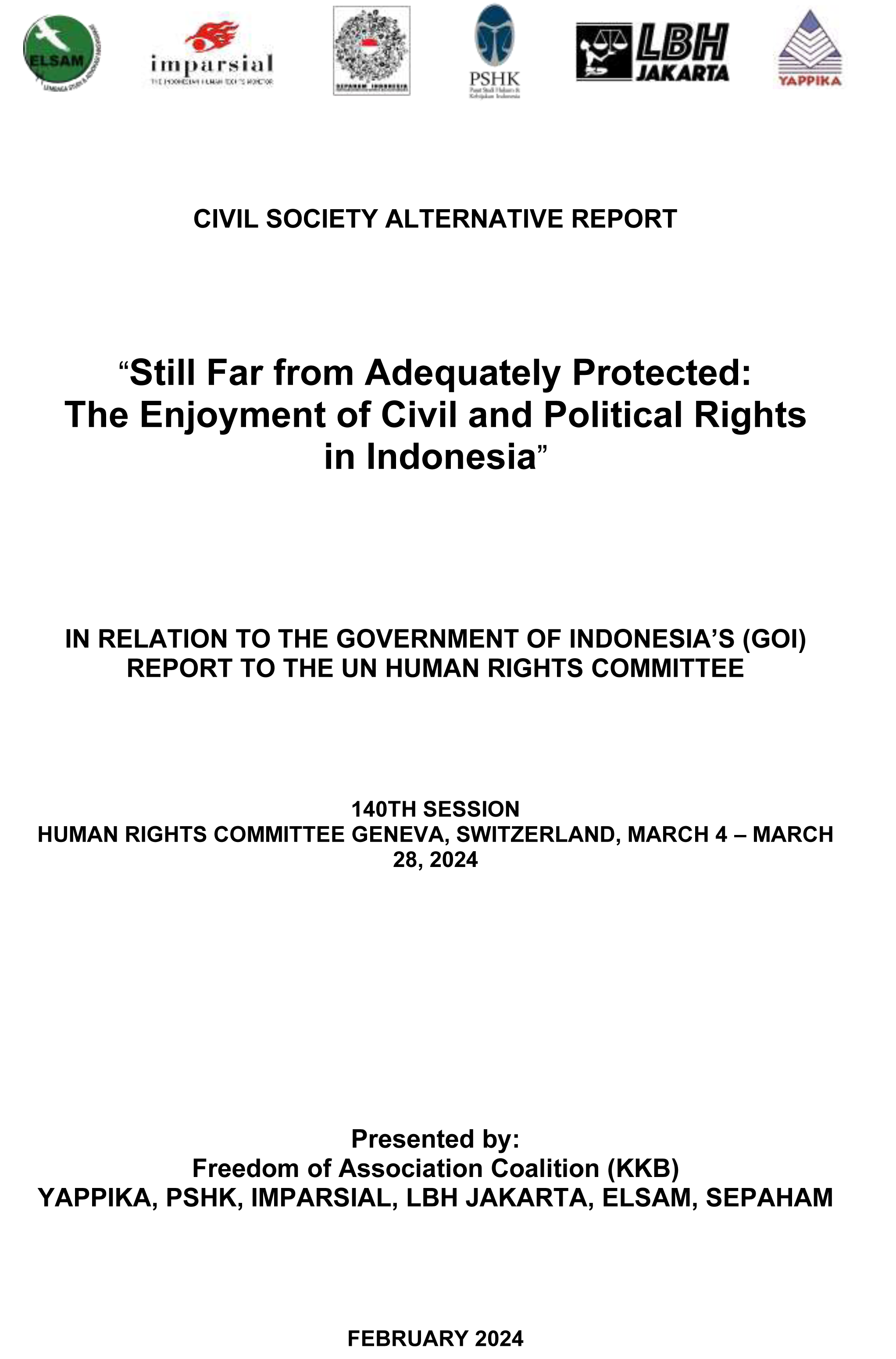 In 2025, Indonesia will have been a state party to the International Covenant on Civil and Political Rights (ICCPR) for 20 years since its ratification in 2005. Indonesia’s participation in the international agreement as one of the core international human rights instruments, was an incredibly noteworthy progress after more than three decades under Soeharto’s authoritarian New Order. As an instrument serving as a reference and standard for countries in fulfilling civil and political rights, there is great expectation that this participation will have a significant impact on the better enjoyment of rights and freedoms in the ICCPR. Unfortunately, that was not the case. Nearly two decades into Indonesia’s participation in the ICCPR, problems related to respecting, protecting, fulfilling, and advancing rights and freedoms in this covenant are still far from expectations and even worse.
In 2025, Indonesia will have been a state party to the International Covenant on Civil and Political Rights (ICCPR) for 20 years since its ratification in 2005. Indonesia’s participation in the international agreement as one of the core international human rights instruments, was an incredibly noteworthy progress after more than three decades under Soeharto’s authoritarian New Order. As an instrument serving as a reference and standard for countries in fulfilling civil and political rights, there is great expectation that this participation will have a significant impact on the better enjoyment of rights and freedoms in the ICCPR. Unfortunately, that was not the case. Nearly two decades into Indonesia’s participation in the ICCPR, problems related to respecting, protecting, fulfilling, and advancing rights and freedoms in this covenant are still far from expectations and even worse.
Violations of rights and freedoms did not only happen at the implementation level of statutory regulations but, more fundamentally, were caused by various provisions in regulations substantially contradictory and/or not in harmony with the ICCPR. Some regulations from the older, undemocratic government are kept and not revoked. Furthermore, many of the laws and regulations issued were contrary to the ICCPR’s goals. This alternative report provides many examples of violations in the enjoyment of civil and political rights caused by laws and regulations with flawed provisions such as regulations on freedom of expression, freedom of association and assembly, freedom of religion and belief, and freedom of the press. Legislative laws, which, according to Article 2 paragraph (2) of the ICCPR, must be created to have an effect on the various rights and freedoms contained in the ICCPR, actually have the opposite effect.
At the implementation level, this report shows that government officials are still far from demonstrating behaviour that is aware of human rights even though guarantees of civil rights and freedoms are included in statutory regulations and even in the 1945 Constitution. This report shows that excessive violence is still used resulting in physical and mental casualties and even loss of life. In many cases, the Government of Indonesia (GoI) also often uses a criminal law approach to reduce and even eliminate public participation in the policy-making process. It is even more concerning that these violations are often not followed up with adequate evaluation and correction, or without even being followed up with legal accountability for the officers or officials who commit the violations.
This alternative report was prepared by different elements of civil society in response to the report submitted by the GoI to the UN Human Rights Committee. This report is expected to provide a more comprehensive illustration of the human rights situation in Indonesia, especially for civil and political rights. In addition to providing an alternative view, this report also provides suggestions and recommendations for the UN Human Rights Committee in response to the report submitted by the GoI, as well as serves as recommendation materials for better protection of the rights and freedoms guaranteed in the ICCPR.
Source:
